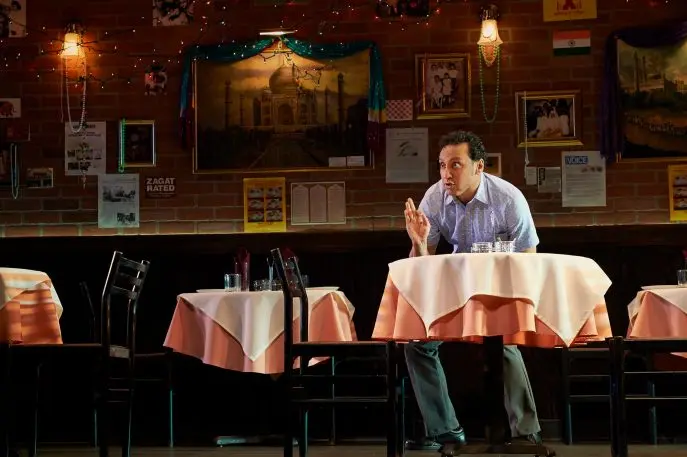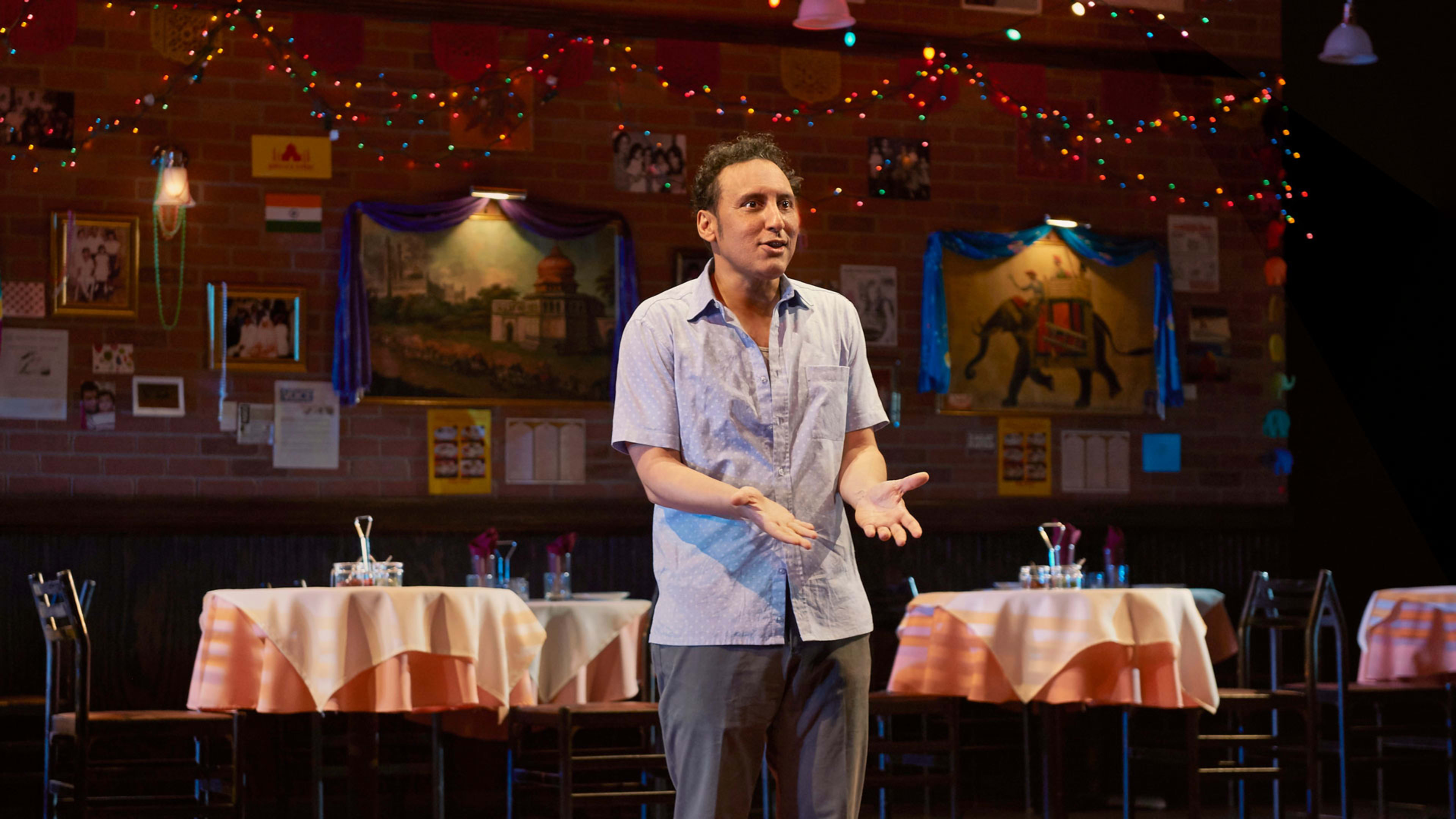When Aasif Mandvi first came on the New York acting scene over two decades ago, he wasn’t exactly bowled over by the opportunities available to him. “As a young brown actor in the mid-’90s, there were really no roles for me,” he tells Fast Company. “I’d go to auditions—and this would be for TV or even commercials, or whatever—and I would often end up playing the stereotypical Indian, head-wobbling, accented caricatures.”
All that changed, of course, after Mandvi found fame and success as a correspondent for The Daily Show, a gig that earned him a loyal following and wide acclaim for his comedic chops and sardonic observations about culture and politics.

But Mandvi considers himself an actor first. He cut his teeth on small stages as a young theater graduate from the University of South Florida. And yet, even when he did get a chance to perform scenes from classic works like, say, Death of a Salesman or Glass Menagerie, he says he the material never felt like it “came from my DNA,” something that set him apart from his white contemporaries. “It just felt like American theater was mostly writing stories about white people,” says Mandvi, who was born in Mumbai and whose family emigrated to the U.S. by way of Britain when he was a teenager.
Frustrated by the lack of stage roles for actors of South Asian descent, Mandvi decided to create his own. In 1998, he wrote and performed a one-man show called Sakina’s Restaurant, which revolves around a New York eatery and the Indian immigrant who comes to work there as a waiter. The show earned Mandvi an Obie Award, and to this day, he still recalls it as the first time he got to play characters that were true to his own lived experiences. (He later felt that same thrill as the lead in the off-Broadway run of Ayad Akhtar’s Disgraced, which went on to win a Pulitzer Prize.)

Now hear this
Over the last 20 years, Mandvi says he’s kicked around the idea of remounting Sakina’s Restaurant, but the thought of having to update the story and modernize the references always felt like a chore. Then he was approached by Audible, the Amazon-owned platform known for its vast library of audiobooks and other spoken-word entertainment. The company expressed interest in producing Sakina’s Restaurant as part of its new theater initiative, in which it records and preserves live stage shows at off-Broadway’s Minetta Lane Theater in the West Village.
Kate Navin, Audible’s artistic producer, says the aim of the initiative is to make high-quality theater content accessible to global audiences. “Very often it’s just hard to get to a theater, and we firmly believe it’s some of the greatest work there,” she says. “So it’s about making it available to people beyond the run and available through audio. At the core of so many of these shows is great storytelling, and being able to hear it, you get the full experience.”
For stage creators it’s an enticing deal. Audible puts up the money to produce the work, and uses its vast distribution platform to make it available to anyone with a computer or mobile device. The company declined to say how much it spends on the theater initiative, but Navin, who has a background as a theatrical agent, says Audible is committed to preserving works for the stage at various levels. Last year it announced a $5 million fund to commission works from emerging playwrights. And since it reached its deal with the Minetta Lane Theater earlier this year, it has already produced stage performances by the likes of Billy Crudup, Carey Mulligan, and Patti Smith.
But in Sakina’s Restaurant, Audible is preserving something entirely more timely: a story that humanizes the immigrant experience in the age of Trump. When Mandvi dusted off the script after 20 years, he says he was struck by how urgent the story felt at a time when politicians were debating Muslim bans, and immigrant children were being locked in cages. In that context, he saw the show as an antidote of sorts to the current wave of isolationism and xenophobia coursing through American politics.
“It becomes a piece of political theater without being political at all,” he says. “This was never my intention, but that’s what this play does now in the world today. Just humanizing the immigrant experience in today’s world suddenly became a political act.”
Sakina’s Restaurant began performances earlier this month and has been extended through November 11. As for updating the ’90s setting and references, Mandvi and Audible decided that wasn’t necessary at all. On the contrary, Mandvi says, the story has aged into a poignant time capsule, a period piece through which audiences can revisit the immigrant experience at what now seems like such a simpler time. “It was pre-9/11 when I did it—pre-internet, pre-Bush,” Mandvi says. “It’s interesting to play it today in a world that’s very different.”
Recognize your brand’s excellence by applying to this year’s Brands That Matter Awards before the early-rate deadline, May 3.
